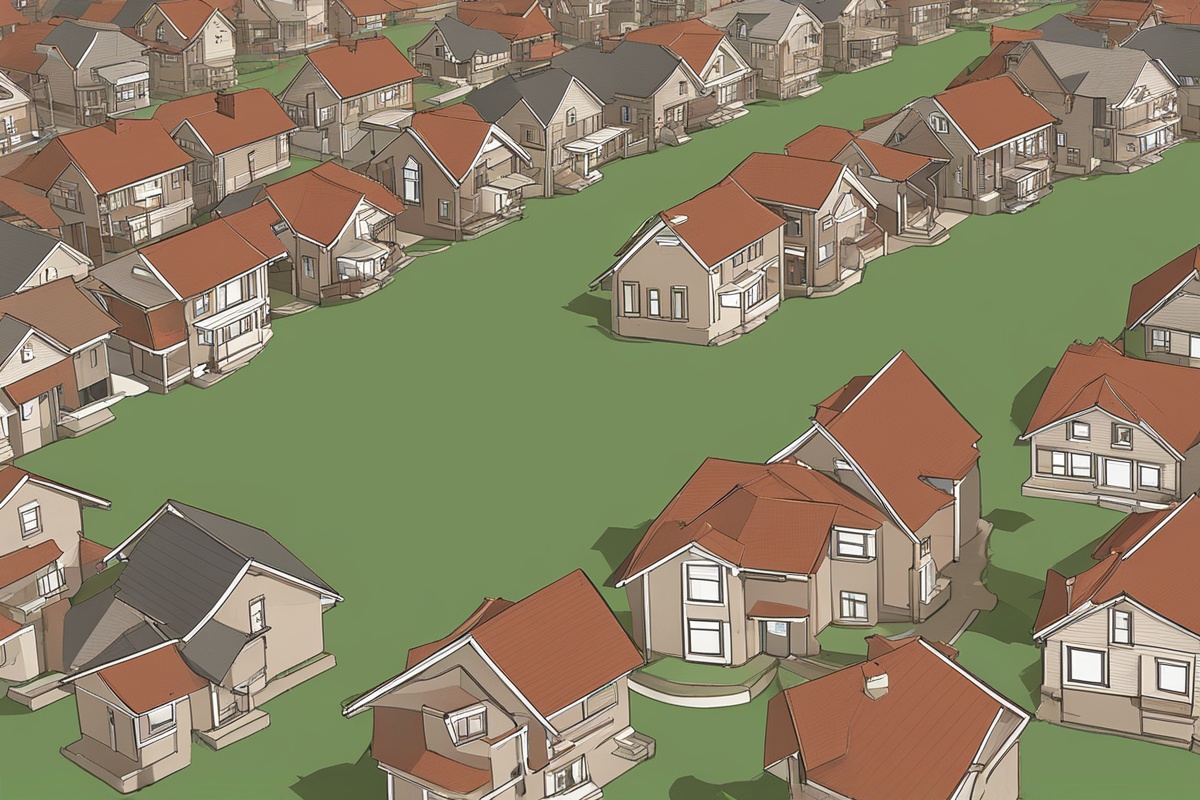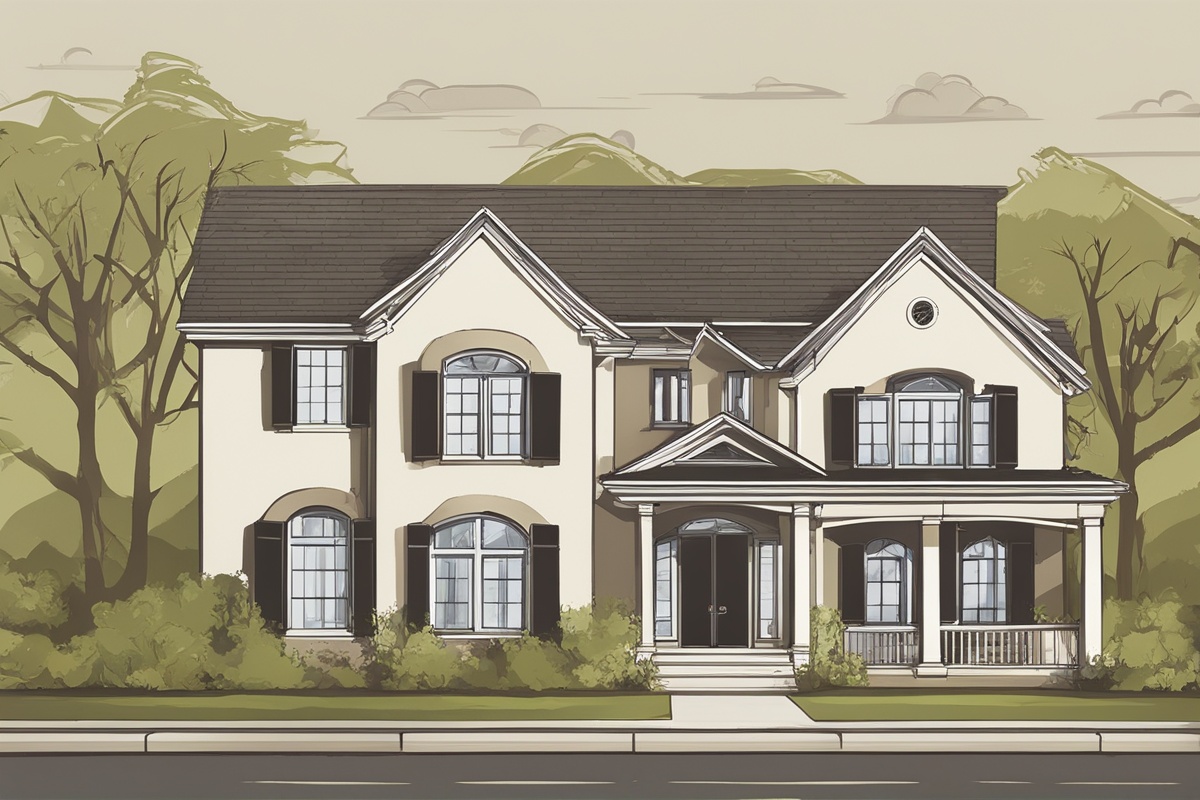Have you ever wondered, what is foreclosure, and why it’s such a daunting term for homeowners? If you’re facing financial challenges or simply curious about the real estate world, understanding foreclosure is crucial. It’s a legal process that can have a profound impact on individuals and families, often leading to the loss of a home. But don’t worry—I’m here to break it down for you in a way that’s easy to grasp. In this comprehensive guide, we’ll dive into the meaning of foreclosure, how it happens, its consequences, and, most importantly, what you can do to prevent it. Whether you’re a homeowner, a potential buyer, or just exploring the topic, let’s unpack this complex subject together with practical insights and actionable advice.
What Is Foreclosure? A Simple Definition
At its core, what is foreclosure? Foreclosure is a legal process initiated by a lender when a borrower fails to make mortgage payments as agreed. Essentially, it’s the lender’s way of recovering the money owed by taking possession of and selling the property used as collateral for the loan. This typically happens after several missed payments, and the homeowner is unable to resolve the default. According to a report by the Federal Reserve, foreclosure rates often spike during economic downturns, as seen during the 2008 housing crisis (Federal Reserve, 2010). While the term might sound intimidating, understanding the mechanics behind it can empower you to take control if you’re ever in a tough spot.
The foreclosure process isn’t instantaneous—it involves multiple stages, notices, and opportunities for the homeowner to rectify the situation. It’s also worth noting that foreclosure laws vary by state, with some requiring judicial oversight (judicial foreclosure) and others allowing lenders to proceed without court involvement (non-judicial foreclosure). Knowing which type applies in your area is a critical first step in navigating this process.
How Does the Foreclosure Process Work?
Understanding what is foreclosure also means knowing how the process unfolds. While specifics differ based on state laws and the type of foreclosure, the general timeline follows a predictable pattern. It starts with missed payments and ends with the potential sale of the property. Let’s walk through the key stages to give you a clearer picture.
- Missed Payments: The process begins when a borrower misses one or more mortgage payments. Lenders typically allow a grace period of 15–30 days before considering the payment delinquent.
- Notice of Default: After about 90 days of non-payment, the lender issues a formal Notice of Default, warning the homeowner of the risk of foreclosure if the debt isn’t settled.
- Pre-Foreclosure Period: This stage offers a window to resolve the issue—whether by catching up on payments, negotiating a loan modification, or selling the home.
- Foreclosure Sale: If no resolution is reached, the property is auctioned off to the highest bidder, often at a public foreclosure auction.
- Eviction (if necessary): If the homeowner hasn’t vacated the property after the sale, the new owner or lender may initiate eviction proceedings.
Keep in mind that timelines can vary. For instance, judicial foreclosures, common in states like Florida, can take over a year due to court involvement, while non-judicial processes in states like Texas are often faster (HUD, 2021). Being aware of these steps can help you act proactively if you’re at risk of foreclosure.
The Consequences of Foreclosure: What You Need to Know
Now that we’ve covered what is foreclosure and how it works, let’s talk about its impact. Losing a home is, of course, the most immediate and emotional consequence, but the ripple effects extend far beyond that. Foreclosure can derail your financial stability and mental well-being, so it’s important to understand the full scope.
First, foreclosure severely damages your credit score. A foreclosure can drop your score by 100–160 points and remain on your credit report for seven years, making it harder to secure loans, rent an apartment, or even get certain jobs (Experian, 2022). Additionally, you might face a deficiency judgment if the sale of the home doesn’t cover the outstanding loan balance, meaning you could still owe money to the lender. On a personal level, the stress and stigma of losing a home can take a toll on relationships and self-esteem.
However, it’s not all doom and gloom. Many people recover from foreclosure with the right strategies, and understanding the consequences upfront can motivate you to explore alternatives. Speaking of which, let’s look at some ways to avoid this outcome altogether.
How to Avoid Foreclosure: Practical Tips for Homeowners
If you’re wondering what is foreclosure and how to prevent it, you’re already taking a proactive step. The good news is that there are several options available to homeowners facing financial hardship. Lenders often prefer to avoid foreclosure too, as it’s costly and time-consuming for them. Here are some actionable strategies to consider if you’re struggling to make mortgage payments.
- Contact Your Lender Immediately: Don’t wait until you’ve missed multiple payments. Reach out to your lender at the first sign of trouble to discuss hardship options like forbearance or a repayment plan.
- Explore Loan Modification: This involves adjusting the terms of your mortgage—such as lowering the interest rate or extending the loan term—to make payments more affordable.
- Consider a Short Sale: If you can’t afford the home long-term, a short sale allows you to sell it for less than the owed amount with lender approval, avoiding foreclosure.
- Seek Housing Counseling: HUD-approved housing counselors can provide free or low-cost guidance on navigating foreclosure risks (HUD, 2021).
Additionally, tightening your budget or seeking assistance from government programs like the Home Affordable Modification Program (HAMP) can make a difference. Remember, the earlier you act, the more options you’ll have. I’ve seen friends and family navigate these waters by simply picking up the phone and being honest with their lender—it’s often the hardest but most effective first step.
Foreclosure and the Housing Market: Broader Implications
Beyond individual homeowners, what is foreclosure in the context of the broader economy? Foreclosures don’t just affect the person losing their home—they can impact entire communities and the housing market at large. When multiple homes in an area go into foreclosure, property values can decline, creating a domino effect. This was painfully evident during the 2008 financial crisis, where widespread foreclosures contributed to a housing market collapse (Federal Reserve, 2010).
For potential buyers, foreclosed properties often represent an opportunity to purchase homes at a discount. However, these deals come with risks, such as properties being sold “as-is” with hidden damages. On a macro level, high foreclosure rates can signal economic distress, prompting government intervention through policies like moratoriums or relief programs. Understanding these dynamics can help you make informed decisions, whether you’re a homeowner or an investor curious about foreclosure properties.
Myths and Misconceptions About Foreclosure
When exploring what is foreclosure, it’s easy to stumble upon misinformation. There are several myths surrounding the process that can lead to confusion or poor decision-making. Let’s clear up a few common misconceptions to ensure you have accurate information.
One myth is that foreclosure happens overnight. In reality, it’s a lengthy process with multiple warnings and opportunities to resolve the issue. Another misconception is that once foreclosure starts, there’s no way out. As we’ve discussed, options like loan modifications or short sales can halt the process if pursued early. Lastly, some believe that foreclosure only affects “irresponsible” borrowers. The truth is, unexpected events like job loss, medical emergencies, or economic downturns can push even the most diligent homeowners into financial distress (Urban Institute, 2019). Knowing the facts can help you approach the situation with clarity and confidence.
In conclusion, understanding what is foreclosure is the first step to protecting yourself or recovering if you’ve been through the process. Foreclosure is a challenging and often emotional journey, but it’s not an insurmountable one. By familiarizing yourself with the stages, consequences, and prevention strategies, you can take control of your financial future. Whether you’re a homeowner at risk, someone looking to buy a foreclosed property, or just curious about the topic, knowledge is power. If you’re facing foreclosure, don’t hesitate to reach out to your lender, a housing counselor, or a trusted advisor—there’s always a path forward. And remember, setbacks like these don’t define you; they’re just chapters in a larger story. What steps will you take today to secure your home and peace of mind?
References
- Federal Reserve. (2010). The 2008 housing crisis and foreclosure trends. Retrieved from https://www.federalreserve.gov
- HUD. (2021). Foreclosure prevention resources and housing counseling. U.S. Department of Housing and Urban Development. Retrieved from https://www.hud.gov
- Experian. (2022). How foreclosure impacts your credit score. Retrieved from https://www.experian.com
- Urban Institute. (2019). Foreclosure myths and economic realities. Retrieved from https://www.urban.org





